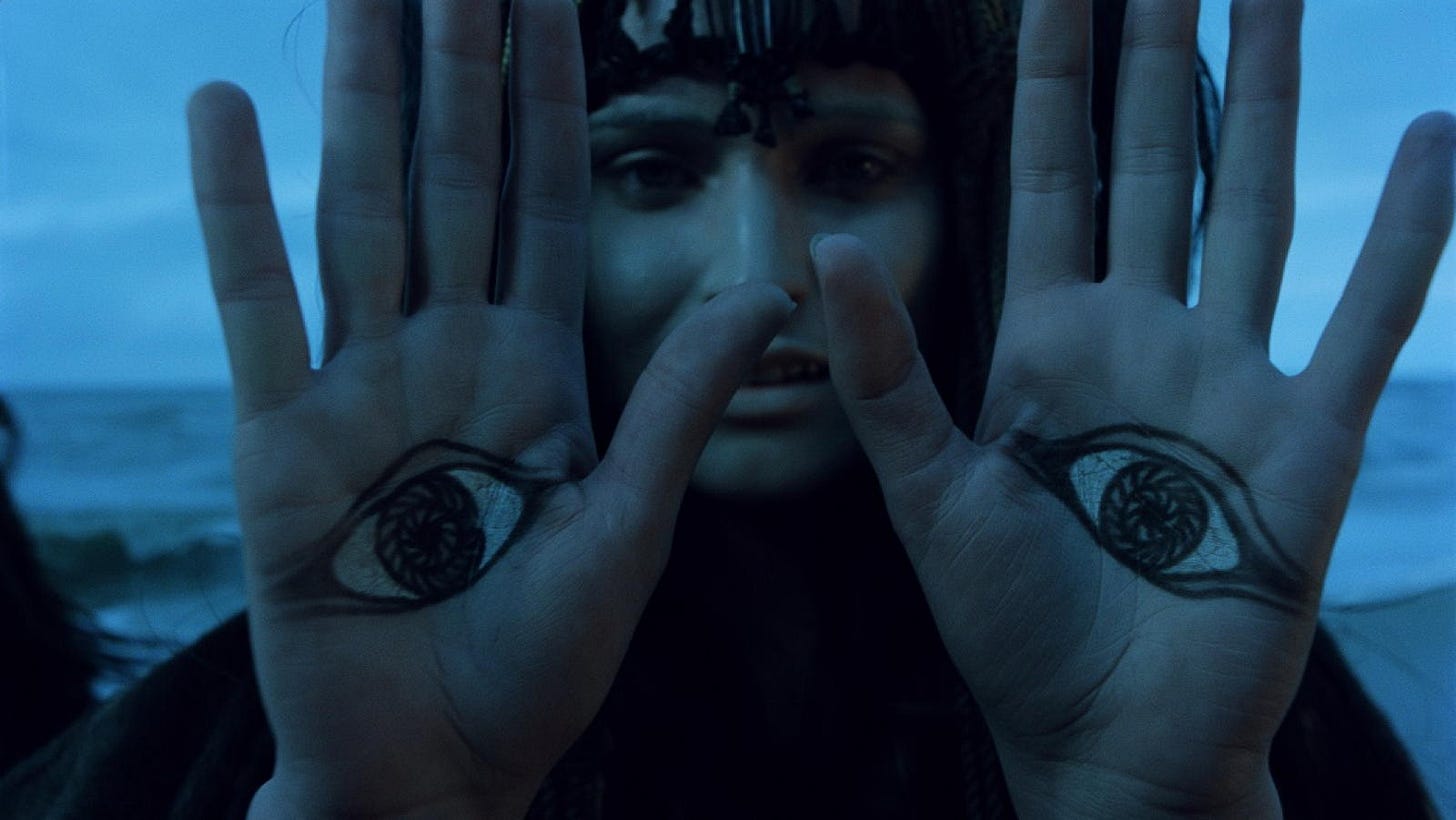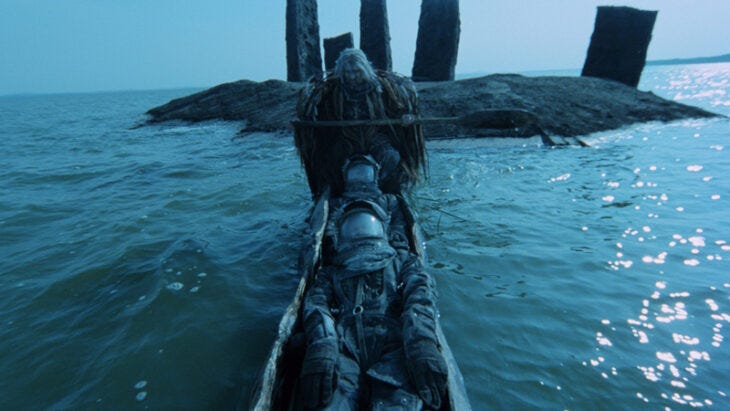It’s finally here, folks, and I’m so delighted to share it with you. I’ve been dreaming of covering On the Silver Globe for a long time now, and what better way to do so than alongside this week’s Rewind & Revive podcast episode — my most in-depth exploration yet.
Below is a version of my original Letterboxd review, lightly edited for clarity.
On the Silver Globe should have been Andrzej Żuławski's magnum opus. It’s painful that he never got to complete it properly. Once you learn more about Żuławski’s life, the film’s sorrow hits harder. His own life and pain cut deep and bled into the movie.
Żuławski, despite coming from a well-off and literary family, lived a difficult life. His earliest memories were shaped by brutal violence during WWII — horrors that found their way into his 1971 debut, The Third Part of the Night. But that film, raw and unflinching, was pulled from theaters almost immediately by communist censors. His next, The Devil, faced an even worse fate: shelved for 18 years, forcing Żuławski to leave Poland under "suggestion" from the authorities. He spent years in France, separated from his wife and son. By the time he returned, his marriage had crumbled.
It was in this broken state that Żuławski turned to On the Silver Globe, adapting his great-uncle’s sci-fi Lunar Trilogy — books he’d first read as a teenager. Their despair resonated deeply. “They are disturbing and perhaps the saddest books I’ve ever read,” he once said.
Even his mentor, Andrzej Wajda, warned him against undertaking this project. But Żuławski, stubborn as ever, pushed forward. His passion infected the cast and crew, and together they ventured to far-flung locations, including the Gobi Desert, the Caucasus Mountains in Georgia, and the Wieliczka Salt Mines near Kraków, among others.
The story of the production (now wonderfully chronicled in the 2021 doc Escape to the Silver Globe) is infamous. Some crew members suffered through mental health struggles and hallucinations; others ran away. The despair seen in the film practically matched that of everyone involved. It almost seemed to speak to lines uttered in the movie: “So many departed, but only a few have returned.”
That initial excitement, however, faded. In 1977, after nearly a year of shooting, the Polish government abruptly halted production. Costumes and props were destroyed or buried. Żuławski wept at the news.
After nearly a decade, with Poland’s political tides shifting, Żuławski finally completed the film in the only way he could: by narrating over the missing scenes with b-roll footage of modern-day Poland, openly acknowledging the project’s ruin.
On the Silver Globe is challenging to follow, no question. But its scope is staggering. Mythology, religion, philosophy, political despair… all wrapped in Żuławski’s warped wide-angles, high crane shots, and dizzying handheld tracking shots. His signature violence is also present here. I’d argue that it’s some of his most harrowing.
Could it have been a more polished, accessible film if he’d reined himself in? Maybe. But would it have been as bold, as personal, as unforgettable? Probably not. If completed as planned, On the Silver Globe would have been released just before Star Wars. Imagine that parallel universe, where a Polish sci-fi tragedy redefined the genre before Lucas’s space opera. Sure, it likely wouldn’t have had the same mass appeal, but it’s a curious thought to flirt with, of what could have been.
For me, On the Silver Globe is equal parts heartbreaking and hypnotic. As Żuławski himself said, “On the Silver Globe is both a film and a story about this film. A story of a certain life and a certain country.”
I hope this write-up inspires you to check out the full podcast episode. My guest, Van Padilla, and I dive much deeper into the frenzied production history, the film’s dense narrative, and Żuławski’s legacy. Give it a listen if you want the full story behind this sci-fi fever dream.
… And if you want to keep following what Van is up to, check him out on Linktree.
You can also listen to or watch this episode on:









